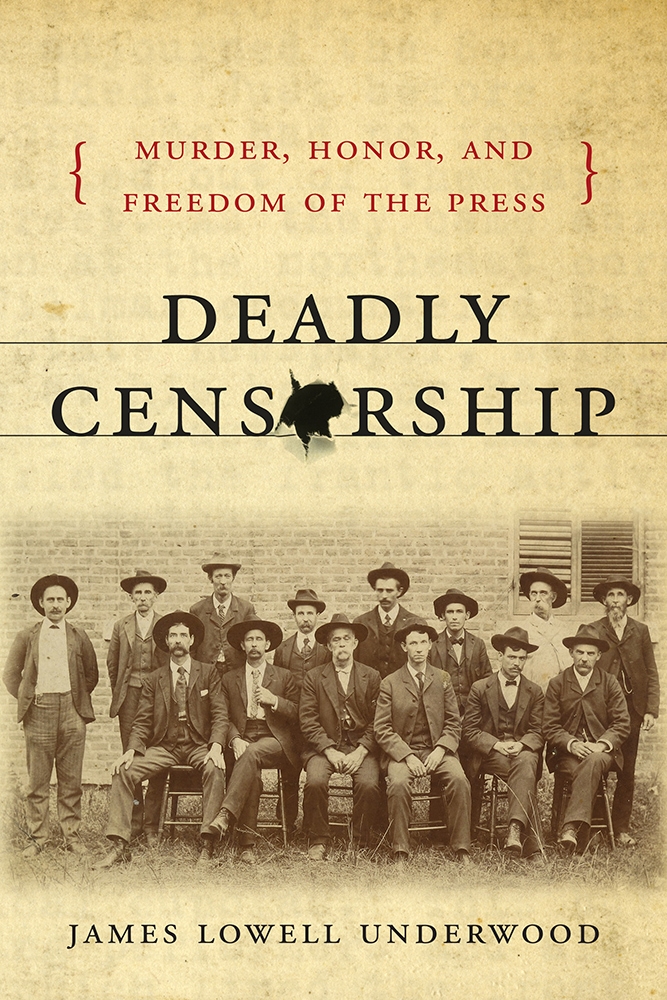Black History Month Sale: 40% off all books, plus FREE SHIPPING on all U.S. orders over $50 | Use code JBHM26

Size: 6 x 9
Pages: 328
Illustrations:
James Lowell Underwood
The inclusion of this book in the Open Carolina collection is made possible by the generous funding of
"Deadly Censorship does make a valuable contribution to understanding the climate in which the press operated in the nineteenth and early twentieth centuries."—American Periodicals
"This excellent book will appeal to anyone interested in legal history of the Gilded Age and Progressive Era, freedom of speech, and the relationship between violence and politics. It will certainly prove useful in upper-division undergraduate classes and graduate seminars."—H-Net Reviews
"sublimely engaging"—Guy Lancaster, The Journal of Southern History
"James Lowell Underwood writes with the clarity of a great teacher, the objectivity of a fine journalist and the deftness of a seasoned legal mind. South Carolinians have much to learn about themselves in this early 20th century story of murder, politics, jurisprudence and the relevance of knowing the truth."—John P. Linton, J.D., Duffy and Young, LLC
"Since the 1920s, the United States has had dozens of sensational trials—all of which have been labeled 'the trial of the century.' There is no question had the trial of Lieutenant Governor James Tillman for the murder of N. G. Gonzales, the editor of the State newspaper, occurred in our time that it would have had the same appellation. James Underwood's riveting account of this infamous South Carolina trial is as gripping as any contemporary courtroom drama."—Walter Edgar, author of South Carolina: A History
"Deadly Censorship is an insightful and in-depth look at the assassination of Columbia newspaper editor N.G. Gonzales by South Carolina Lt. Gov. James H. Tillman in 1903. Jim Underwood's carefully researched work not only reports on the killing and ensuing trial, it explains the forces that created a society where it was acceptable to kill a man to silence his pen."—Jay Bender, Reid H. Montgomery Freedom of Information Chair, University of South Carolina
"The killing of newspaper editor Narcissus Gonzalez by Lieutenant Governor James H. Tillman is a story that has needed telling for over 100 years. Finally, Jim Underwood has unraveled the killing, the murder trial, and the aftermath and through his narrative tells a story of unfettered freedom of the press versus hot-bloodied Southern manhood honor. Without question, Deadly Censorship is a remarkable, eloquent, and important book."—W. Lewis Burke, Director of Clinical Legal Studies, School of Law, University of South Carolina
Copyright 2026
Website By Morweb.org